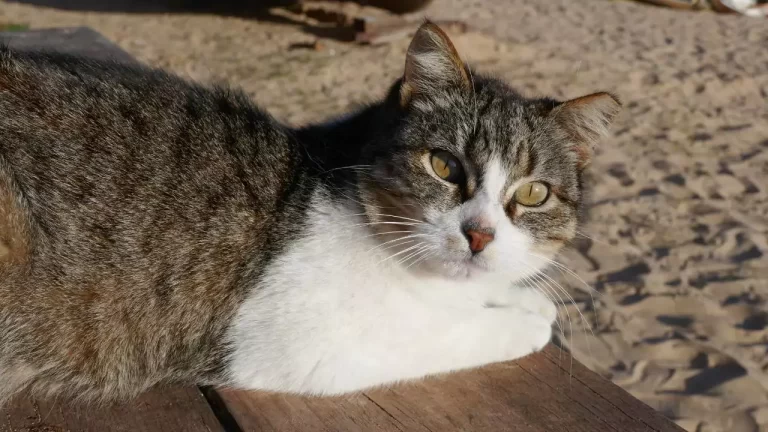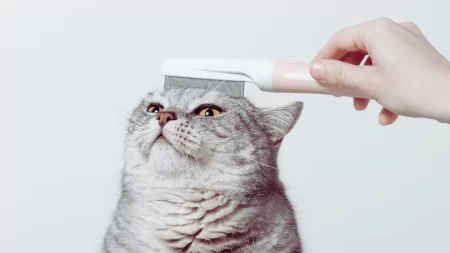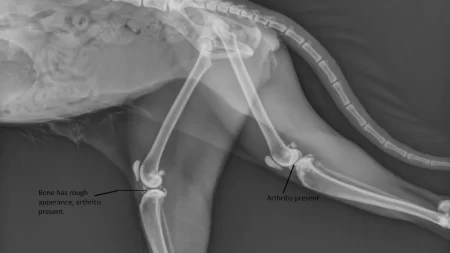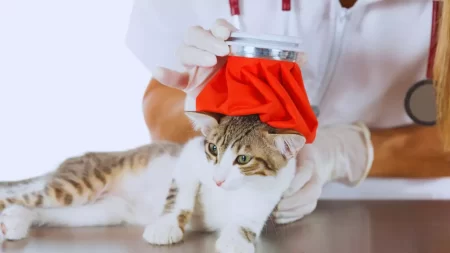Cats can technically survive for about one to two weeks without food if they have access to water. However, it’s crucial to note that any period longer than 24 hours without food is a cause for concern. Unlike humans, cats can endure longer periods without eating than without drinking.
The average cat may go without food for up to two weeks if they have a water supply, but it’s essential to monitor their condition closely. Without proper nutrition, the cat’s strength diminishes, emphasizing the importance of contacting a veterinarian if they haven’t eaten in a day or more.
Why is My Cat Not Eating?
There are many possible causes for your cat’s loss of appetite, ranging from mild to severe. Some of the common ones are:
- Food allergies: Cats can develop allergies to certain ingredients in their food, such as chicken, beef, fish, corn, wheat, or soy. This can cause symptoms like itching, vomiting, diarrhea, or skin infections. If your cat is allergic to their food, they may avoid eating it or eat very little.
- Respiratory problems: Cats can suffer from respiratory infections, such as the common cold, feline herpesvirus, or feline calicivirus. These can affect their sense of smell and taste, making food less appealing to them. They may also have difficulty breathing, coughing, sneezing, or nasal discharge.
- Anxiety: Cats can experience stress and anxiety due to various reasons, such as changes in their environment, routine, or household members, loud noises, unfamiliar visitors, or conflicts with other cats. Anxiety can affect their appetite and make them eat less or not at all.
- Underlying health conditions: Cats can have various health problems that can affect their appetite, such as dental disease, kidney disease, liver disease, diabetes, hyperthyroidism, cancer, or gastrointestinal disorders. These can cause pain, nausea, vomiting, diarrhea, weight loss, or other symptoms that can make your cat reluctant to eat.
- Other reasons: Cats can also stop eating due to other factors, such as old age, pregnancy, lactation, medication side effects, or food preferences. Sometimes, cats may simply be bored or finicky with their food and need some variety or stimulation.
What Happens When Cats Stop Eating?
When cats stop eating, their body starts to use up their stored fat and protein for energy. However, unlike humans and other animals, cats are not very efficient at metabolizing fat. This can lead to a condition called fatty liver disease or hepatic lipidosis, where excess fat accumulates in the liver and impairs its function. Fatty liver disease can cause symptoms such as jaundice, lethargy, vomiting, drooling, or seizures. It can also lead to liver failure and death if left untreated.
Besides fatty liver disease, cats can also suffer from other health implications when they stop eating, such as:
- Dehydration: Cats can lose water and electrolytes when they stop eating, especially if they also stop drinking. This can cause symptoms such as dry mouth, sunken eyes, weak pulse, or skin tenting. Dehydration can also affect the kidneys and other organs and lead to shock and death if severe.
- Muscle wasting: Cats can lose muscle mass and strength when they stop eating, especially if they are already thin or have a chronic illness. This can affect their mobility, immunity, and quality of life.
- Immune system suppression: Cats can have a weakened immune system when they stop eating, making them more susceptible to infections and diseases. This can worsen their existing health problems or cause new ones.
Tips for Encouraging Your Cat to Eat
If your cat is not eating, you should try to find out the reason and address it as soon as possible. You should also consult your veterinarian for a proper diagnosis and treatment plan. In the meantime, here are some tips for encouraging your cat to eat:
- Keep them hydrated: Make sure your cat has access to fresh, clean water at all times. You can also offer them wet food, broth, or water with a syringe or dropper. Hydration can help prevent dehydration and improve their appetite.
- Try different types of food: You can experiment with different flavors, textures, temperatures, or brands of food to see what your cat likes. You can also try adding some treats, tuna, chicken, cheese, or catnip to their food to make it more enticing. However, avoid changing their diet too frequently or drastically, as this can cause digestive upset or food intolerance.
- Create a calm eating environment: You can make your cat feel more comfortable and relaxed by feeding them in a quiet, safe, and familiar place. You can also reduce any sources of stress or distraction, such as loud noises, other pets, or strangers. You can also try playing some soothing music or using a pheromone diffuser to calm your cat.
- Consult a veterinarian if necessary: If your cat is not eating for more than 24 hours, or if they have any signs of illness or injury, you should take them to the vet as soon as possible. Your vet can examine your cat, run some tests, and prescribe some medications or supplements to stimulate their appetite, treat their condition, or provide nutritional support. In some cases, your cat may need to be hospitalized and fed through a tube or an IV.







